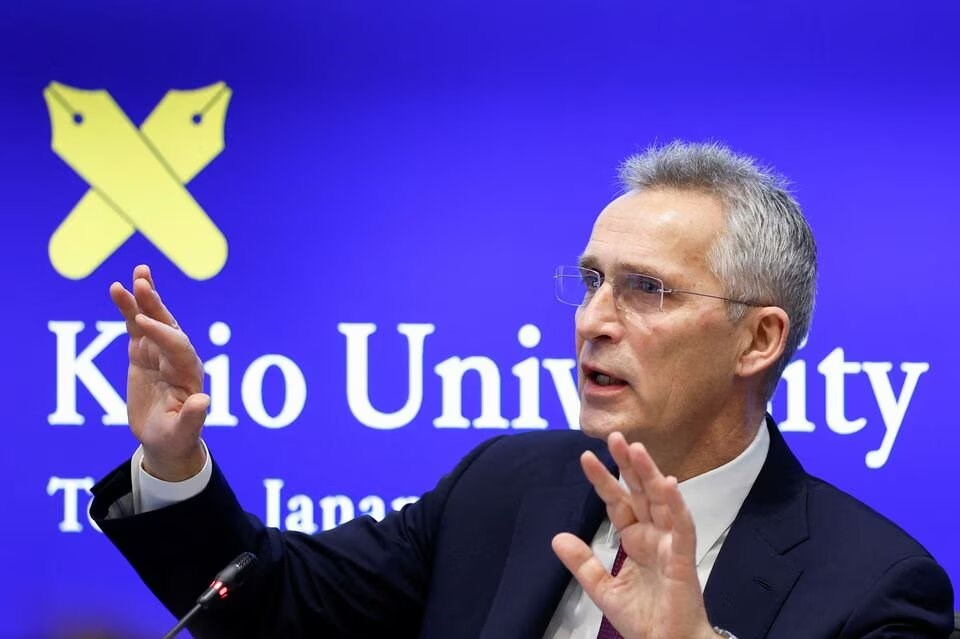Stoltenberg: China long-range missiles 'can reach all NATO territory'
NATO Secretary General Jens Stoltenberg holds a press conference during a visit to Tokyo's Keio University, where he emphasized the alliance's concerns.
-

NATO Secretary General Jens Stoltenberg speaks during a session of a panel discussion and dialogue with students as he visits at Keio University in Tokyo, Japan, February 1, 2023 (Reuters).
China's new military capabilities allegedly pose a threat to the NATO alliance, according to NATO Secretary General Jens Stoltenberg.
During a press conference while on a visit to Keio University in Japan, Stoltenberg highlighted NATO concerns over China's increased presence in various regions across the globe and its long-range missiles which "can reach all NATO territory"
The NATO chief explained, "We see that China is coming closer, we see them in cyberspace, we see them in Africa in the Arctic but also trying to control critical infrastructure in Europe, so this idea that China doesn't matter for NATO is wrong."
Furthermore, Stoltenberg added, "the fact that Russia and China are coming closer and the significant investments by China in new advanced military capabilities just underlines that China poses a threat, poses a challenge also to NATO allies."
This came a day after the NATO chief held a joint press conference with Japanese Prime Minister Fumio Kishida and warned that China monitored closely the war in Ukraine and was "learning lessons that may influence its future decisions."
"What is happening in Europe today could happen in East Asia tomorrow. So we must remain united and firm, standing together for freedom and democracy," the NATO chief claimed.
Increased China-Russia cooperation
The two leaders emphasized their growing concerns regarding the increased cooperation between China and Russia.
"We highlight with concern Russia's growing military cooperation with China, including through joint operations and drills in the vicinity of Japan," they said during the joint statement.
In that regard, Stoltenberg also praised the "strong position" and "substantial support" that Japan has offered to Ukraine so far.
According to the NATO chief, China is "not our adversary" but advised caution as he referenced its growing military presence across Asia, "including nuclear weapons, bullying neighbors and threatening Taiwan." Furthermore, Stoltenberg claimed that China has spread disinformation regarding the alliance and the situation in Ukraine.
The DPRK was also considered a point of increased concern, as the two leaders regarded its most recent nuclear activity and ballistic missile tests as "provocative behavior".
Deepening ties
On his part, Kishida emphasized Japan's intention to establish an independent representative office that would handle NATO matters as the country aims to deepen ties with the alliance.
Furthermore, the PM noted that the country considered becoming a regular participant in high-level meetings held by NATO.
Read more: NATO chief urges S. Korea to 'step up' military support for Ukraine

 3 Min Read
3 Min Read








